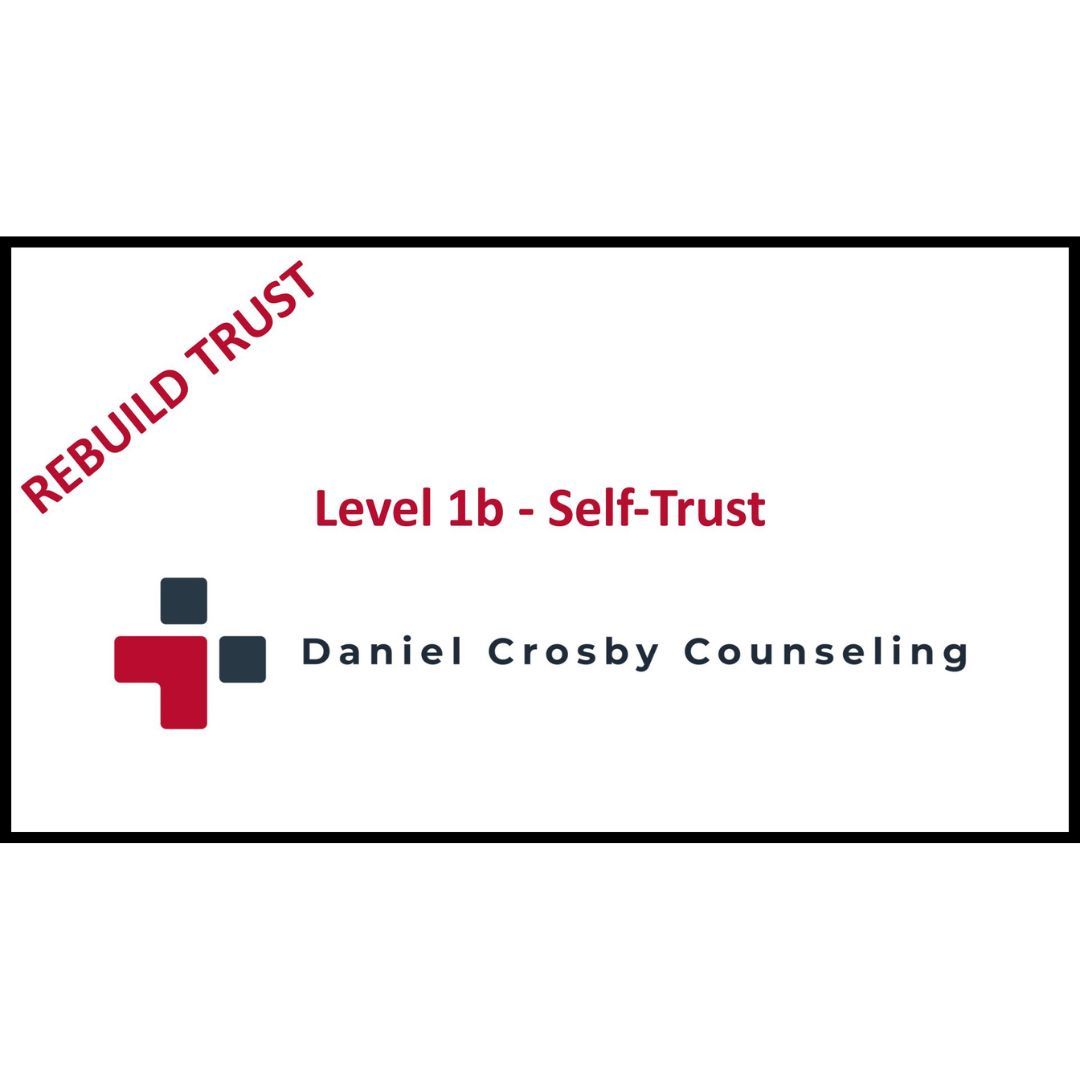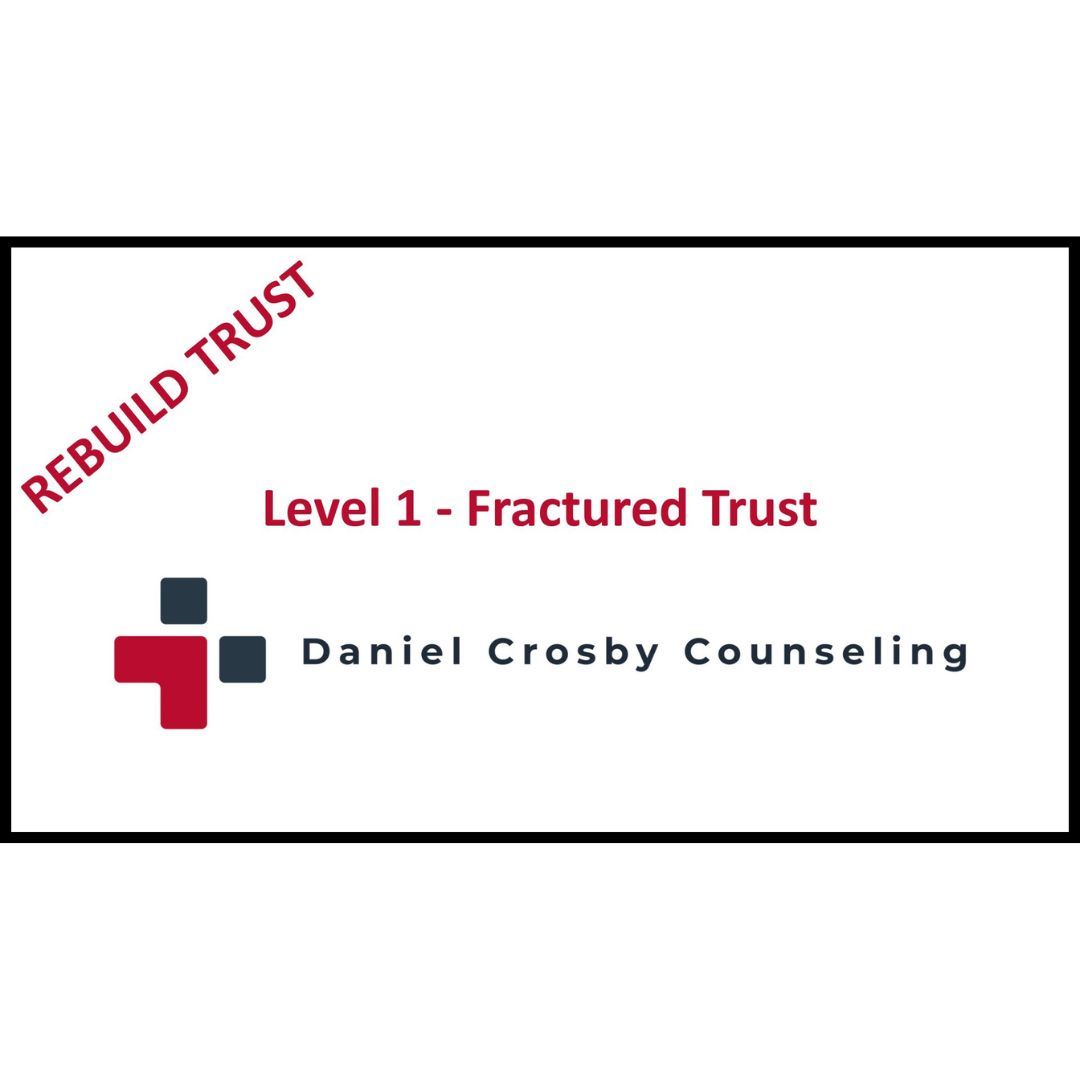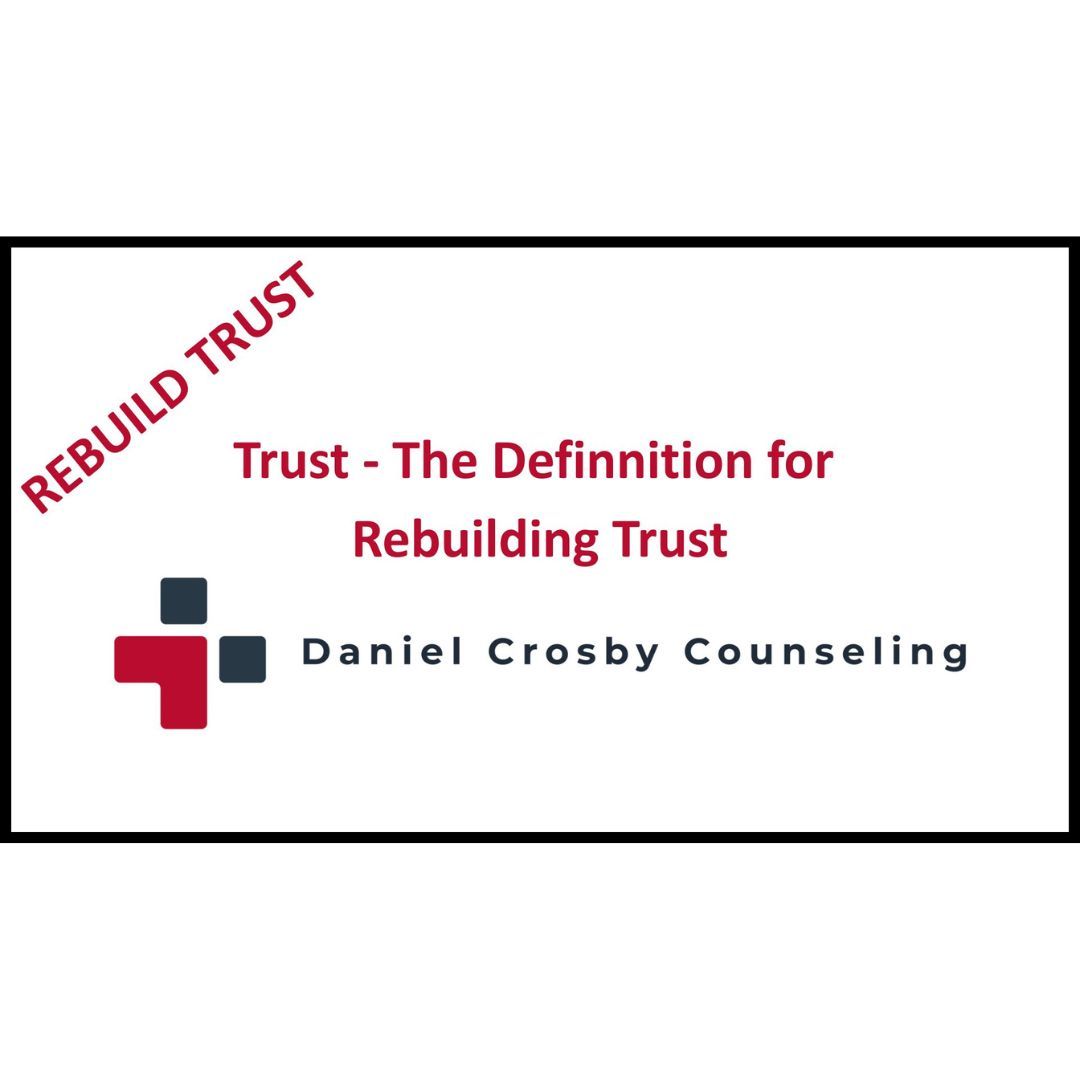"The Great Sex Rescue" Book Review/Warning
Daniel Crosby • June 19, 2025
Alright folks. I read this one, but my review is more of a warning than a recommendation. Read if you are interested but read with a strongly critical mindset.
I read “The Great Sex Rescue” because I’ve heard several people either recommend it or recommend another book by these ladies. It was co-written by three women, Joanna Sawatsky, Rebecca Gregoire Lindenbach, and Sheila Wray Gregoire.
As an aside, another one of their books is called “She Deserves Better.” The title is self-explanatory. Granted I haven’t read this one, but I have a good friend whose marriage was nearly destroyed by this book. When we fill our minds with biased information that fuels ours and others’ confirmation biases, the impact can be extraordinarily powerful.
Ok, so a lot of the couples I meet with in counseling are struggling with the sexual intimacy in their marriages and I’m always on the lookout for good resources to recommend. I’m going to just say from the start that this book scares me. From the start, the premise of this book sounds intriguing. It made me nod my head a little. Ok, maybe I’m on board!
I think we can all agree that men and women have some differences when it comes to sexuality and that generations past and present have struggled in various ways to communicate about sex, to teach about sex, and to know how to view sex through a healthy lens. Sexuality is an oddity because it is taboo on the one hand but universal on the other.
The book attempts to look at sexuality through the lens of Christian women who struggle with sexual intimacy in their marriages. Ok, cool, that’s an incredibly good thing. They conducted a huge survey of women asking them about their sex lives and base some of the book on those statistics. Great! Evidenced based info. I like it! They make some good points such as pointing out that struggles in marital sexuality often have less to do with the act of sex and more to do with arousal. For instance, sex seems freer flowing when dating becaue arousal is easier when dating. There’s that long anticipation before most sexual contact occurs or we’re abstaining entirely from sexual contact until we’re married which makes the arousal that much greater still. Later in married life though, arousal tanks because the goal becomes to sneak a quickie in before the kids barge in. Hmm, good point. What if we focus on improving arousal and anticipation rather than on the performance act of sex? Good insight! I hadn’t thought about it like that.
But the positive teaching and insights I gained were few and far between. The majority of the book seems to be a smear platform for the authors to grind their axes. The ax in question is the evangelical male patriarchy who have taught and written about marriage and sexuality over the past 50 years. They don’t hide the fact that they are appalled at the grievous, outlandish, and even abusive teaching that they reviewed in a lot of the Christian sex and marriage literature throughout past decades.
The book spends page after page trashing authors and their books by name and pointing out that the problem with sexual struggles in marriage is predominantly with the men. But there’s more. Some of these poor simple-minded husbands in our world who are harming their wives oftentimes don’t even know any better because they were raised by a culture of toxic evangelical male church leaders who pointed them to resources that were all but coaching them to abuse their wives.
They quote passages from some of these books and even hint at rape in sections to describe what these books are teaching. A major pattern they suggest the Christian literature teaches is the following:
1. Husbands are sexual, and they can’t help that they need sex all the time. God made them this way.
2. Whether wives feel like it or not, they must give their husband’s sex.
3. If they don’t give their husband’s sex then it causes men to lust and cheat and it’s the wife’s fault if he strays from the marriage.
Now I’ve read most of the books they bash. I would like to think I’m reasonably intelligent person. I would also like to believe that my alarms in my brain would go off if I was reading material that was directly or indirectly teaching me to abuse my wife sexually. Reading some of the passages they cite, some do sound a bit appalling, but I wonder if taken in context there is more to it than these snippets they charge the authors with.
I’ve met with hundreds of couples, many of whom are struggling sexually in their marriages. I’ve yet to have a wife come to me and say that the main problem is her toxic husband sexually abusing her in the bedroom because he read one of the popular Christian marriage/sex books. It’s just way more complex than finding a singular thing to point our finger at.
Most husbands and wives I meet are people who love one another dearly and want nothing more than to please one another. When my friend came to me about the book “She Deserves Better” he asked me scratching his head, “Daniel, am I really this monster that this book tells my wife that I am?” I have to admit, reading “The Great Sex Rescue” made me feel the same way. Have I been an abuser for my whole marriage and I just never realized it? I asked my wife and thankfully she reassured me that the answer is “no.”
I can’t do these ladies’ book justice with just a simple brief review. Buy it and read it for yourself. I believe in reading things that we disagree with because it sparks conversation and makes us think critically. Maybe I am a bit defensive toward some of what I read. I’ve wondered why that may be.
Nonetheless, there seems to be a pattern emerging within the progressive Christian community in pockets where the enemy isn’t spiritual at all. The true enemy, they might say, is the past generation who traumatized us and triggered us with their male evangelical patriarchal abuse sexually and theologically. If that’s true, then yes, throw it off, rebel, and go find freedom.
Is it possible, though, that the truth lies somewhere in the middle? Maybe it’s not all the men’s fault OR responsibility AND maybe it’s also not all the women’s fault OR responsibility. Maybe we’re all more alike than we are different. Maybe we’re all sinner in need of rescue from a Savior. Maybe we’re all sexually and spiritually broken in our own ways and we’re doing our best to help one another heal and find meaning, purpose, joy, and fulfillment in our marriages and relationships.
Maybe we can seek resources and find the good in them and discard what is not helpful; eat the meat and spit out the bones. The importance is that we’re communicating about it. We’re doing it together, in community, because that’s how God created us.

Level 1b: Self-Trust After betrayal, many people don’t just lose trust in their partner, they lose trust in THEMSELVES. “Did I miss the signs?” “Was I naive?” “Can I ever trust my own judgment again?” Rebuilding self-trust is not about becoming fearful or suspicious of everyone. It’s about reconnecting with your perceptions, instincts, and internal signals and learning to respect them again. Maybe you sensed something was off but talked yourself out of it to preserve the relationship or the family. That doesn’t mean you’re bad it means you were trying to do the right thing and ended up getting bit. This level runs through EVERY stage of trust rebuilding. Even as your partner becomes more consistent, your work is to begin to listen to your inner self again. When self-trust grows, you’re no longer relying entirely on your partner’s behavior to feel safe. You begin to carry safety inside yourself again. For the partner who caused the harm: Be patient. Support your partner in regaining confidence in their own feelings and reality. Avoid defensiveness, minimizing, or anything that resembles gaslighting. For the betrayed partner: Practice trusting your instincts and emotional responses. Recall times when you listened to your gut well. Reestablish what you will and will not accept in a relationship and honor those boundaries consistently.

Level 1: Fractured Trust After a betrayal trust shattered. People in this level say, “Everything feels broken. I don’t know if I can ever trust again.” That makes sense, because betrayal doesn’t just hurt your heart; it disrupts your sense of reality and safety. But you’re still here; still considering what repair might look like. The fact that you haven’t walked away entirely says there’s a part of you that hopes healing might be possible. Level 1 is not about forgiveness or resolution. It’s not about moving on. It’s about honesty, stabilization, and finding safety again. This is also a time to avoid impulsive emotional decisions. You don’t have to decide the future today. You just have to survive today and take good care of yourself. You don’t have to know yet whether trust can be rebuilt. Right now, the only question is: Can we create enough safety for healing to begin? And that… is a powerful place to start. For the partner who caused the harm: Acknowledge the pain without defending, minimizing, or explaining it away. DO NOT SAY: “I didn’t mean to,” or “It wasn’t that bad,” or “You’re overreacting.” SAY THIS: “I see the damage. I take responsibility. I’m willing to repair.” Your tone, attitude, and consistency matter more than your words right now. For the betrayed partner: Your work is not to “get over it,” but to let the pain be real without letting it control your life. Try not to distract or numb yourself to the point that you can’t feel anything. This is where trusted friends, a good therapist, or a pastor can come alongside you to help.

Before we jump into the Levels of Trust, it's important that we have a good working definition of how to rebuild trust. "AUTHENTIC CONSISTENCY WITH TRANSPARENCY OVER TIME" Authentic - This cannot be manipulative, spiteful, fake, or contrived. It is humble, cheerful, and freely given. Consistency - Tell me what you're going to do and then do it. Transparency - Whatever you do, do it wide open. No hidden actions, agendas, or ulterior motives. Time - Do it over and over again for as long as it takes. Focus on this definition as we jump into the Levels next time!

